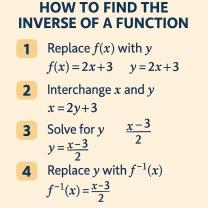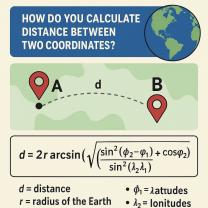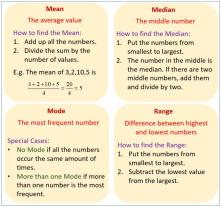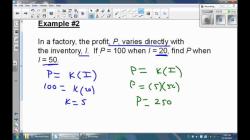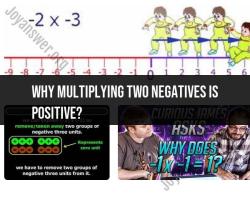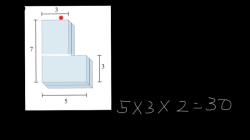What does no solution mean in math?
In mathematics, "no solution" is a term used to describe a situation in which an equation or a system of equations has no valid solution that satisfies the given conditions. This means that there are no values for the variables that can make the equation or system true.
Here are a few common scenarios in which "no solution" can arise in mathematics:
Inconsistent Equations: When dealing with a system of linear equations, if the equations are inconsistent, it means they are contradictory and cannot be simultaneously satisfied. This typically happens when the equations represent parallel lines in the coordinate plane or when they represent mathematically incompatible relationships.
Undefined Operations: In some cases, an equation might involve operations that lead to undefined results. For example, dividing by zero is undefined in mathematics. If an equation involves dividing by zero, it has no solution because there is no valid value that can make the equation true.
Extraneous Solutions: In certain situations, equations may appear to have solutions, but upon closer examination, these solutions may be extraneous or invalid. In these cases, the equation might be initially solved, but the solutions do not satisfy all the original conditions. This is sometimes referred to as "no real solution" or "no valid solution."
Domain Restrictions: Equations can also have no solution if the values of the variables are restricted to a certain domain, and the proposed solutions fall outside of that domain. For example, in the context of square roots, an equation like has no solution when working with real numbers, but it has a solution in the complex number system.
The concept of "no solution" is important in mathematics as it helps to identify when certain mathematical problems are unsolvable or when they have constraints that cannot be met. Recognizing and understanding "no solution" scenarios is an integral part of mathematical problem-solving and ensures that solutions are both valid and meaningful.
Decoding "No Solution" in Mathematics: Definition and Implications
In mathematics, a no solution means that there is no value for the variable that satisfies all of the equations in the system. This can have a number of implications, depending on the context in which the equation is being used.
In some cases, a no solution can simply indicate that the problem is not possible to solve. For example, if you try to solve the equation x + 1 = 0 for x, you will end up with the equation x = -1. However, there is no number that, when added to 1, equals -1. This means that the equation has no solution.
In other cases, a no solution can have more complex implications. For example, in physics, a no solution to a system of equations can indicate that the physical system being modeled is not possible. For example, if you try to model a perpetual motion machine using a system of equations, you will end up with a no solution. This means that it is impossible to construct a perpetual motion machine.
When Mathematical Equations Lead to No Solution
There are a few specific conditions that can cause a mathematical equation to have no solution:
- Parallel lines: If two lines have the same slope but different y-intercepts, they will never intersect, and the system of equations will have no solution.
- Contradictory equations: If two equations are contradictory, meaning that they cannot both be true at the same time, then the system of equations will have no solution. For example, the system of equations
x + y = 1andx + y = -1has no solution, because it is impossible for the sum of two numbers to be both 1 and -1 at the same time. - Undefined equations: If an equation is undefined, meaning that there is no value for the variable that makes all of the terms in the equation meaningful, then the system of equations will have no solution. For example, the equation
x^2 + y^2 = -1has no solution, because it is impossible for the sum of two squares to be negative.
Scenarios and Examples of Equations with No Solution
Here are some scenarios and examples of equations with no solution:
- Economics: If you try to model a market where there is no demand for a product, the system of equations will have no solution. This means that it is not possible for the market to exist.
- Engineering: If you try to design a bridge that cannot support its own weight, the system of equations will have no solution. This means that the bridge cannot be built.
- Physics: If you try to model a perpetual motion machine, the system of equations will have no solution. This means that it is not possible to construct a perpetual motion machine.
Mathematical Consequences and Problem Solving with No Solution
In mathematics, a no solution can have a number of consequences. For example, if you are trying to solve a system of equations to find the optimal solution to a problem, and the system has no solution, then it means that there is no optimal solution to the problem.
However, a no solution can also be a valuable tool for problem solving. For example, if you are trying to solve a system of equations to model a real-world situation, and the system has no solution, then it means that the situation is not possible. This can help you to identify and avoid potential problems.
Navigating No Solution Situations in Math with Confidence
When you encounter a no solution situation in math, it is important to stay calm and assess the situation. First, try to identify the reason why the equation has no solution. Is it because the equations are parallel? Contradictory? Undefined?
Once you have identified the reason for the no solution, you can then decide how to proceed. If the no solution indicates that the problem is not possible to solve, then you can stop there. However, if the no solution has more complex implications, then you may need to do further research to understand what the no solution means and how to proceed.
Here are some tips for navigating no solution situations in math with confidence:
- Don't be afraid to ask for help. If you are stuck on a no solution situation, ask your teacher, a classmate, or a tutor for help. They can help you to identify the reason for the no solution and to develop a plan for proceeding.
- Use technology. There are a number of software programs and online tools that can help you to solve systems of equations. If you are having trouble solving a system of equations on your own, try using a software program or online tool to help you.
- Be patient. It may take some time to understand the implications of a no solution


